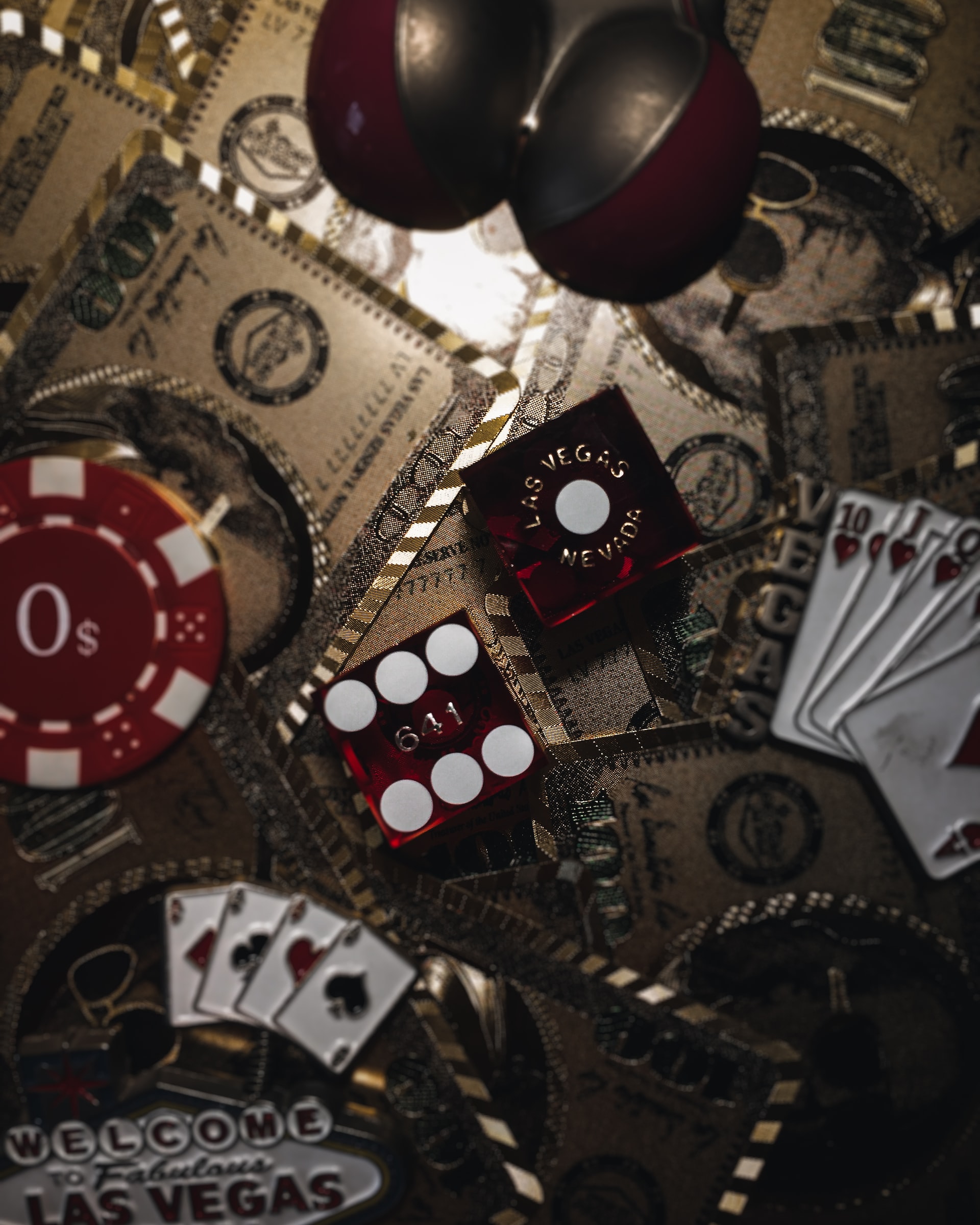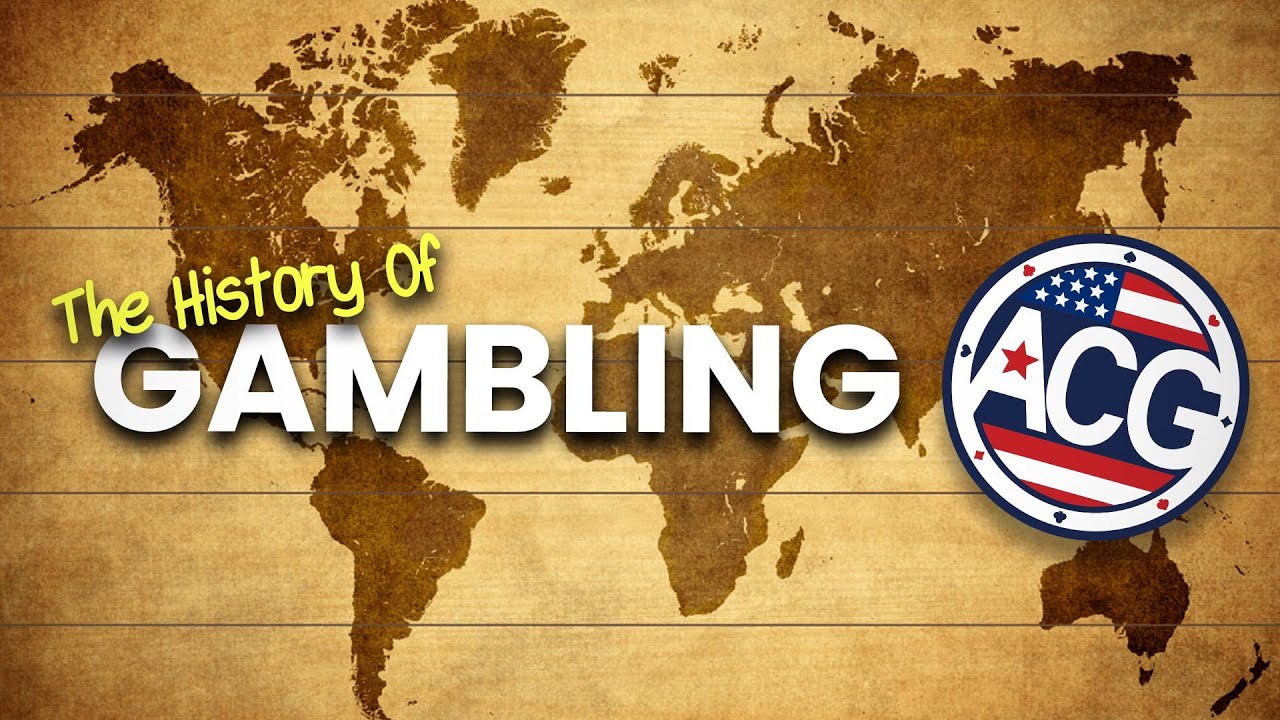The History And Evolution Of Gambling Around The World - From Ancient Times To Modern Day
The history and evolution of gambling around the world is a fascinating subject that traces back to ancient civilizations and continues to shape modern society. Gambling has been a big part of human culture and entertainment for a long time, from the first games in ancient Egypt and China to the rise of online casinos and sports betting today.
Author:Suleman ShahReviewer:Han JuMar 07, 202358K Shares773.7K Views

The history and evolution of gambling around the worldis a fascinating subject that traces back to ancient civilizations and continues to shape modern society.
From the earliest forms of gambling in ancient Egypt and China to the modern-day proliferation of online casinos and sports betting, gambling has played a prominent role in human culture and entertainment.
The evolution of gambling has been shaped by various factors, including advances in technology, changing social attitudes, and governmental regulation.
This article will explore the historyand evolution of gambling around the world, examining how it has developed and changed over time.
Evolution Of Gambling
Gambling has been a part of human society for centuries and has evolved significantly over time. From the earliest games of chance played in ancient civilizations to the modern-day online casinos, gambling has been a source of entertainment and a way to generate revenue.
Ancient Gambling
The earliest forms of gambling can be traced back to ancient civilizations such as Egypt, China, and Greece. These cultures engaged in various forms of gambling, including games of chance, animal racing, and sports betting.
Medieval And Renaissance Gambling
During the Middle Ages and the Renaissance, gambling continued to be a popular pastime in Europe. Various forms of gambling became associated with specific social classes, with the nobility favoring games such as chess and backgammon, while commoners preferred simpler games such as dice and cards.
The Rise Of Organized Gambling
In the 19th and 20th centuries, the gambling industry saw significant growth with the rise of organized gambling houses and the development of new technologies such as slot machines. These changes contributed to the growth of the gambling industry and made it more accessible to a wider range of people.
Gambling Regulation
Throughout history, gambling has been regulated in various ways, ranging from outright bans to licensing and taxation. In some cultures, gambling was considered a legitimate form of entertainment and was not regulated, while in others, it was strictly forbidden.
The Impact Of Technology
The advent of the internet has had a profound impact on the gambling industry, with the rise of online casinos and sports betting sites. This has made gambling more accessible to people around the world, but has also raised concerns about addiction and the potential for illegal activities such as money laundering.

The History of Gambling and Casinos!
What Are The Oldest Known Forms Of Gambling Around The World?
The oldest known forms of gambling date back to ancient civilizations such as Egypt, China, and Greece. These cultures engaged in various forms of gambling, including games of chance, animal racing, and sports betting.
For example, ancient Egyptians played a game called Senet, which involved rolling dice and moving pieces across a board, while the Greeks placed bets on the outcomes of sporting events like the Olympic games. Over time, gambling has evolved and developed in different ways across various cultures and regions.
In ancient China, gambling was also a popular activity, with evidence of games of chance being played as far back as the Shang dynasty (1600 BCE-1046 BCE).
One of the oldest known Chinese gambling games is called "pai gow", which involves using tiles to make various combinations. Gambling was also prevalent in Japan during the Edo period (1603-1868), where games such as hanafuda and shogi were played for money.
In Europe, gambling became more widespread during the medieval and renaissance periods, with various forms of gambling becoming associated with specific social classes. For example, the nobility favored games such as chess and backgammon, while commoners preferred simpler games such as dice and cards.
As gambling became more popular, it also became more regulated. In some cultures, gambling was considered a legitimate form of entertainment and was not regulated, while in others, it was strictly forbidden.
In Europe, for example, gambling was often banned by the Church, and many governments also placed restrictions on gambling activities.
The rise of organized gambling houses and the development of new technologies such as slot machines in the 19th and 20th centuries contributed to the growth of the gambling industry and made it more accessible to a wider range of people.
Today, with the advent of the internet, gambling has become even more accessible, with online casinos and sports betting sites offering a convenient way to gamble from the comfort of one's own home.
Despite its long history, gambling remains a controversial and complex issue, with concerns about addiction, social harm, and the potential for illegal activities such as money laundering.
Nonetheless, gambling continues to be a prominent feature of human society, and its evolution and impact will continue to be studied and debated for years to come.
People Also Ask
What Are Some Of The Earliest Forms Of Gambling In History?
Gambling has a long and varied history, with evidence of gambling activities dating back to ancient civilizations such as Egypt and China.
Some of the earliest forms of gambling include games of chance such as dice and card games, as well as sports betting and animal racing.
How Did Gambling Evolve In Europe During The Middle Ages?
During the Middle Ages, gambling was widely popular in Europe, with many forms of gambling becoming associated with specific social classes.
For example, the nobility favored games such as chess and backgammon, while commoners preferred simpler games such as dice and cards.
What Impact Did The Industrial Revolution Have On Gambling?
The Industrial Revolution brought significant changes to the gambling industry, with the development of new technologies such as the slot machine and the rise of organized gambling houses.
These changes contributed to the growth of the gambling industry and made it more accessible to a wider range of people.
How Has Gambling Been Regulated Throughout History?
Gambling has been regulated in various ways throughout history, ranging from outright bans to licensing and taxation. In some cultures, gambling was considered a legitimate form of entertainment and was not regulated, while in others, it was strictly forbidden.
How Has The Internet Impacted The Gambling Industry?
The internet has had a profound impact on the gambling industry, with the rise of online casinos and sports betting sites.
This has made gambling more accessible to people around the world, but has also raised concerns about addiction and the potential for illegal activities such as money laundering. As a result, many countries have implemented regulations to address these issues.
Final Words
The history and evolution of gambling around the world is a fascinating topic that spans centuries and cultures.
From ancient civilizations to modern-day casinos, gambling has played a significant role in human society, both as a source of entertainment and as a means of generating revenue.
Despite its long history, the future of gambling is still uncertain, with new technologies and changing attitudes toward gambling shaping its evolution.
Nonetheless, it is clear that gambling will continue to be a prominent feature of human society, and its impact will be felt for generations to come.

Suleman Shah
Author
Suleman Shah is a researcher and freelance writer. As a researcher, he has worked with MNS University of Agriculture, Multan (Pakistan) and Texas A & M University (USA). He regularly writes science articles and blogs for science news website immersse.com and open access publishers OA Publishing London and Scientific Times. He loves to keep himself updated on scientific developments and convert these developments into everyday language to update the readers about the developments in the scientific era. His primary research focus is Plant sciences, and he contributed to this field by publishing his research in scientific journals and presenting his work at many Conferences.
Shah graduated from the University of Agriculture Faisalabad (Pakistan) and started his professional carrier with Jaffer Agro Services and later with the Agriculture Department of the Government of Pakistan. His research interest compelled and attracted him to proceed with his carrier in Plant sciences research. So, he started his Ph.D. in Soil Science at MNS University of Agriculture Multan (Pakistan). Later, he started working as a visiting scholar with Texas A&M University (USA).
Shah’s experience with big Open Excess publishers like Springers, Frontiers, MDPI, etc., testified to his belief in Open Access as a barrier-removing mechanism between researchers and the readers of their research. Shah believes that Open Access is revolutionizing the publication process and benefitting research in all fields.

Han Ju
Reviewer
Hello! I'm Han Ju, the heart behind World Wide Journals. My life is a unique tapestry woven from the threads of news, spirituality, and science, enriched by melodies from my guitar. Raised amidst tales of the ancient and the arcane, I developed a keen eye for the stories that truly matter. Through my work, I seek to bridge the seen with the unseen, marrying the rigor of science with the depth of spirituality.
Each article at World Wide Journals is a piece of this ongoing quest, blending analysis with personal reflection. Whether exploring quantum frontiers or strumming chords under the stars, my aim is to inspire and provoke thought, inviting you into a world where every discovery is a note in the grand symphony of existence.
Welcome aboard this journey of insight and exploration, where curiosity leads and music guides.
Latest Articles
Popular Articles